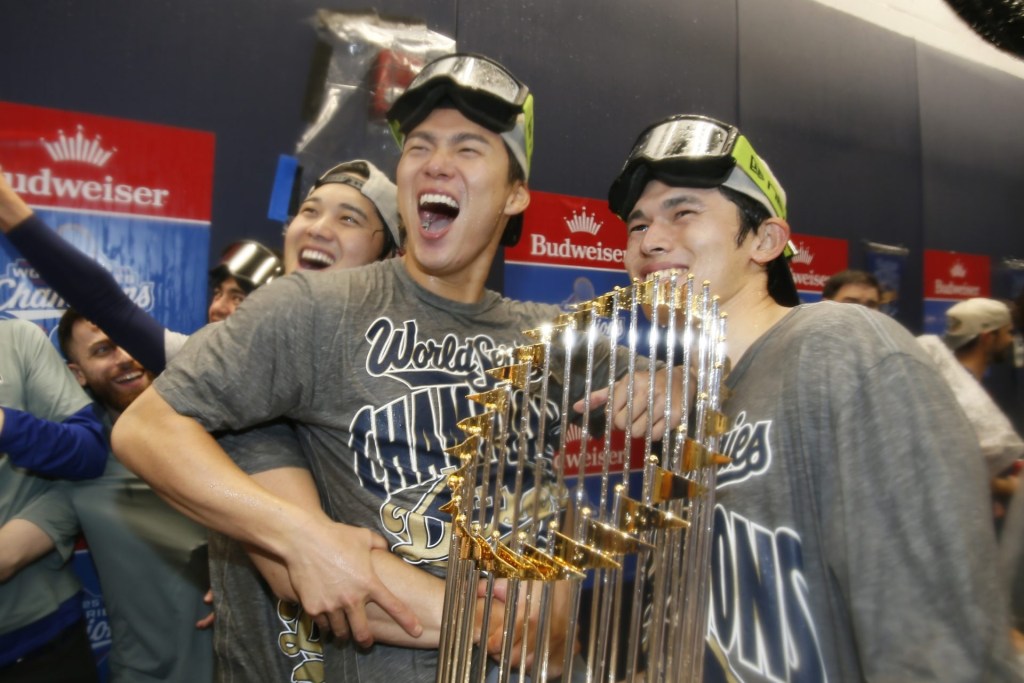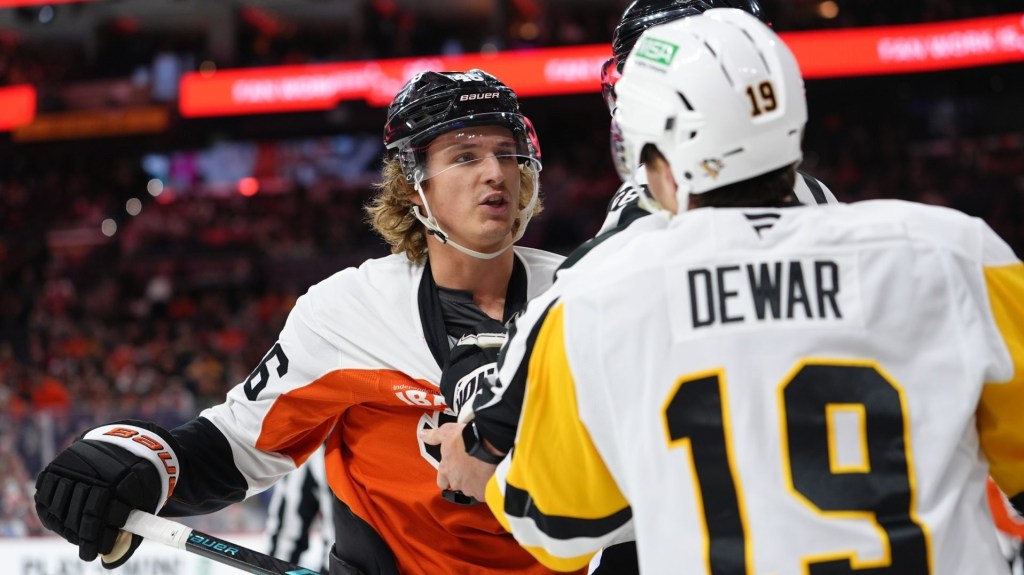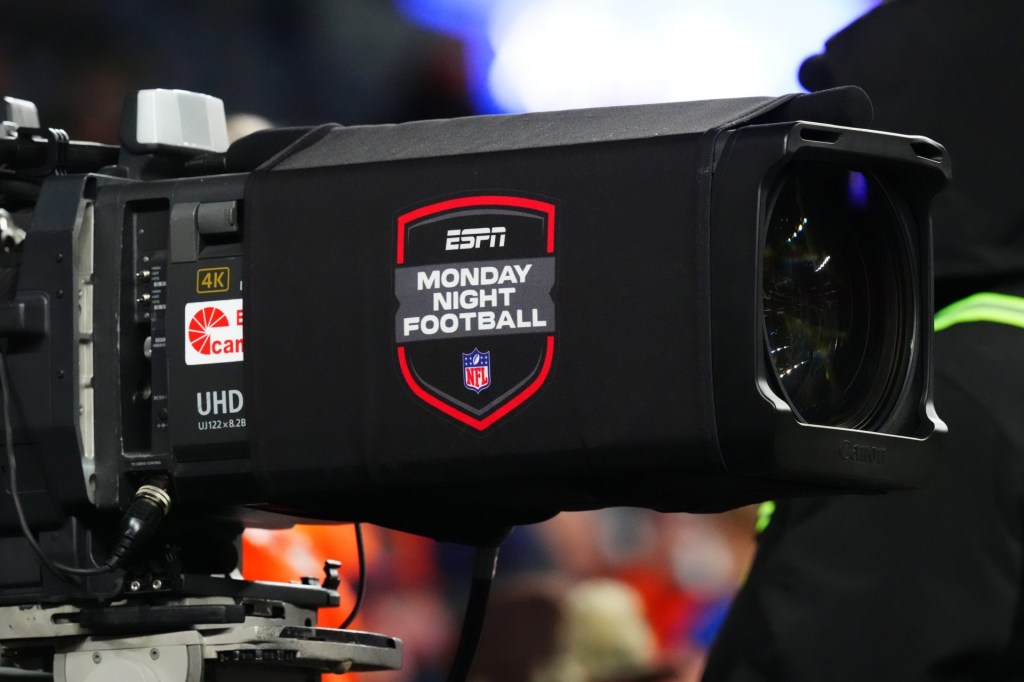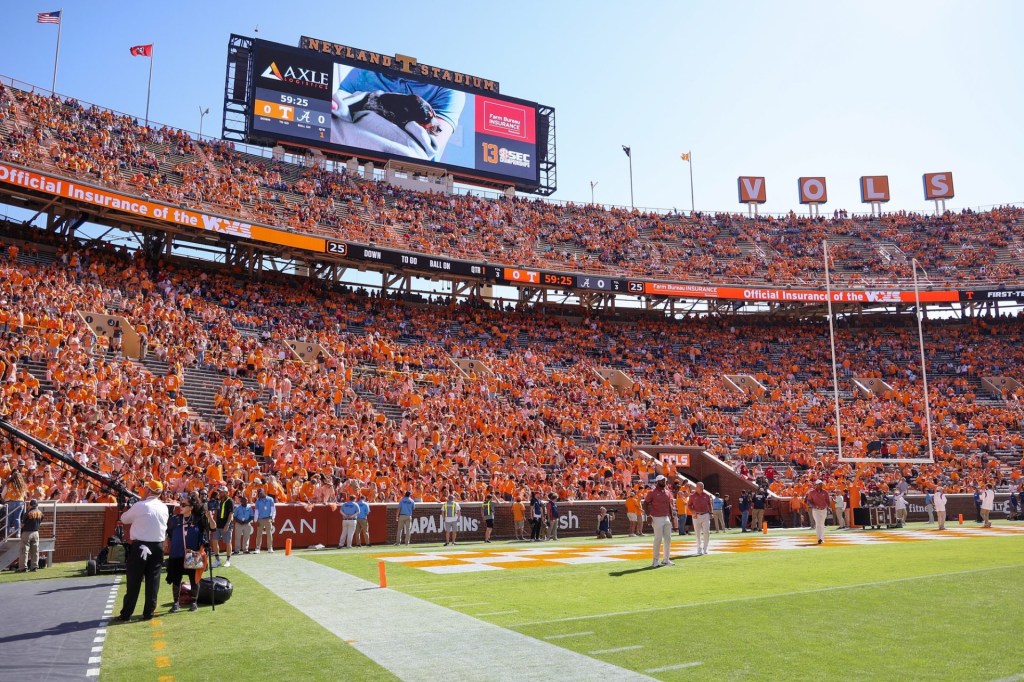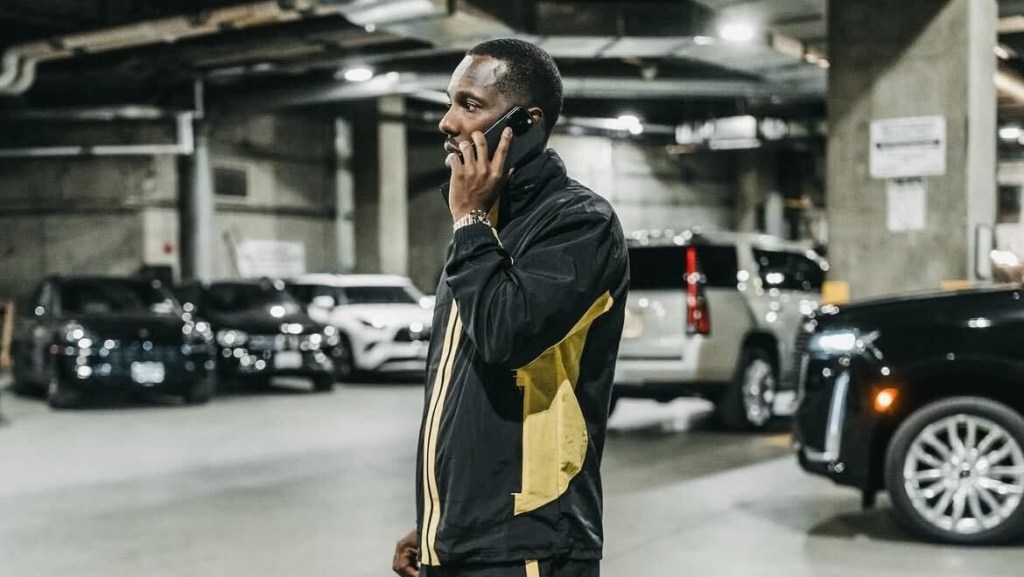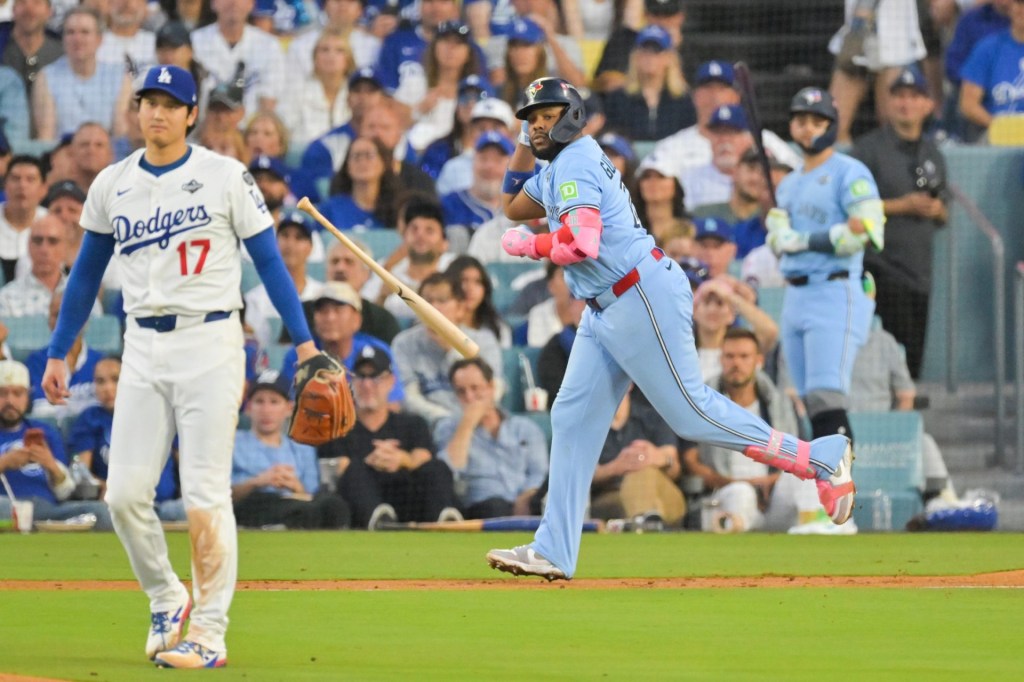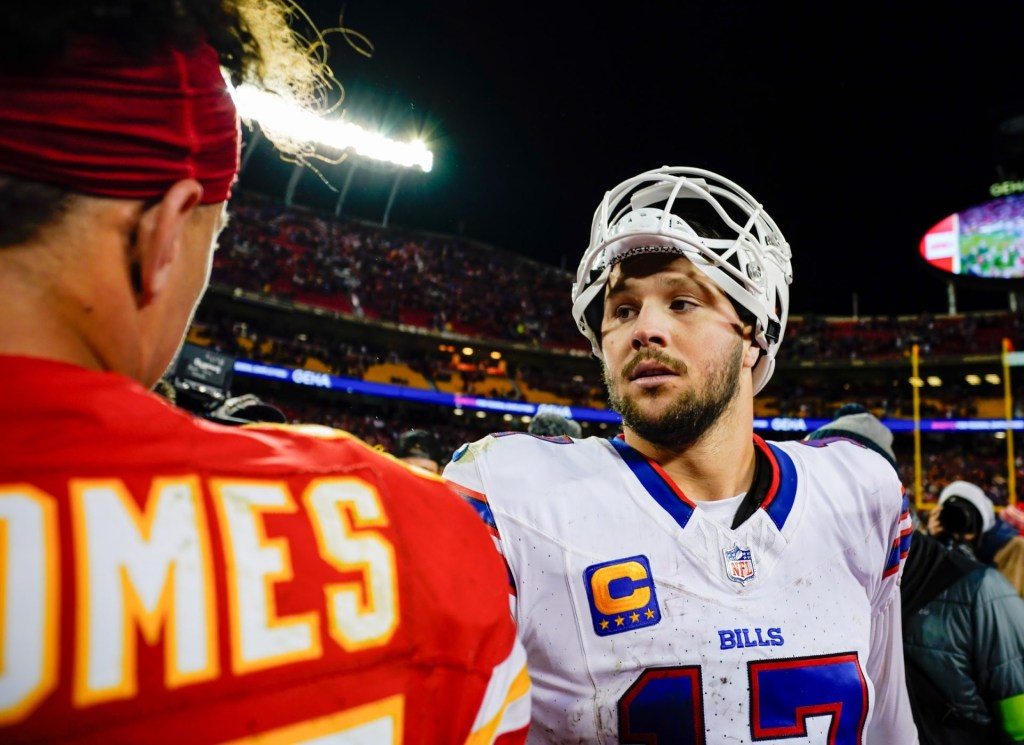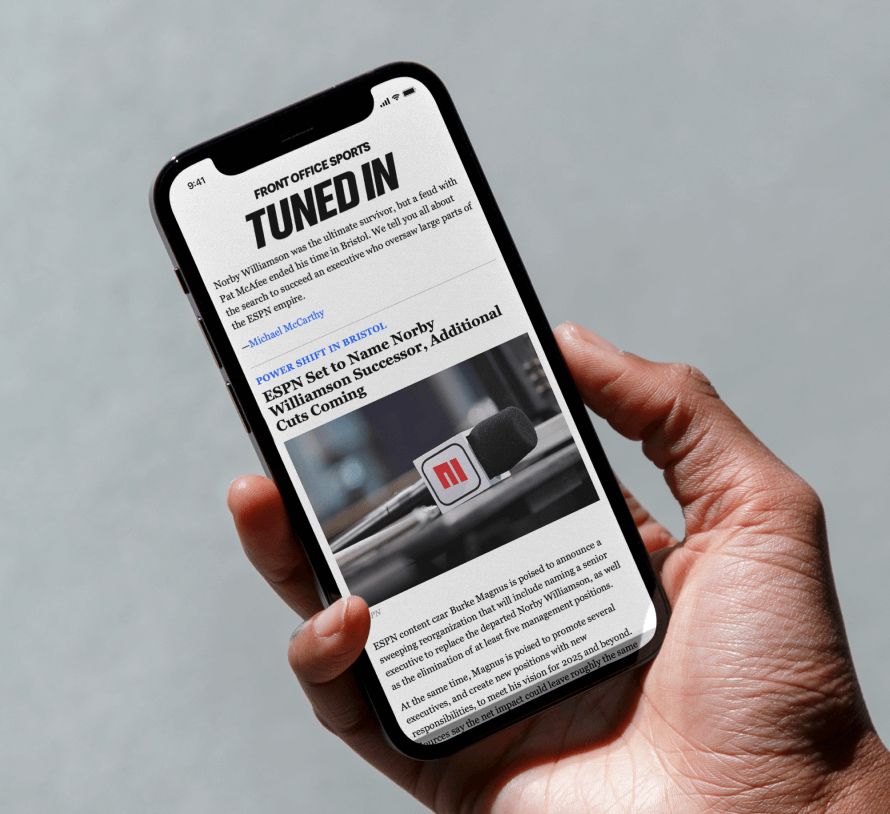This is one way for ESPN chairman Jimmy Pitaro to retain his NBA media rights.
On Friday, CNBC reported that the Walt Disney Co.’s ESPN has held early talks with the NBA, NFL, and MLB about strategic partnerships, including the leagues taking an equity stake in the business.
CNBC’s Alex Sherman noted such a deal would give ESPN a “safety net” with its league partners.
Previously, Disney chief executive officer Bob Iger discussed bringing a strategic partner into ESPN last week.
These talks are still preliminary and could spin off in many directions. But my early read is that Pitaro and Disney’s Bob Iger are playing chess as ESPN enters billion-dollar rights negotiations to try to keep the NBA.
ESPN and Warner Bros. Discovery Sports’ TNT are about to enter an exclusive negotiating period to retain their decade-long rights relationships with the NBA, which expire after the 2024-2025 season.
The NBA wants to double or triple its total payout to $50 billion or $75 billion for its next cycle of long-term media rights. If ESPN and TNT can’t get a deal done, the league could throw open the bidding to bidders with trillion-dollar valuations like Amazon, Apple, and Google.
Comcast’s NBC Sports would love a “Roundball Rock” reunion added to its NFL, Olympic, college football, and Premier League rights.
The NBA is Defcon 1 right now for Pitaro and ESPN. The network has locked up its MLB and NFL media rights through 2028 and 2033, respectively. But Adam Silver’s NBA could be out the door next year.
As one of my old sources in Los Angeles used to say, “Partners don’t fire partners.” Short of writing the biggest check, the best way for ESPN to keep its NBA, MLB, and NFL rights is to make them business partners.
ESPN is also looking to a future where its primary business model – linear cable TV – will be replaced by streaming and other platforms. So it’s time for some very creative strategic thinking, noted CNBC’s Sherman.
“ESPN is trying to forge a new path as a digital-first streaming entity. Disney realizes ESPN won’t be able to make money like it previously has in a traditional TV model,” he wrote. “Selling a minority stake in ESPN to the leagues could mitigate future rights payments, allowing Disney to better compete with the big balance sheets of Apple, Google, and Amazon. It would also guarantee ESPN a steady flow of premium content from the leagues.”
The NFL has been looking for years for a partner to buy part or all of its own media empire, which includes NFL Network and NFL.com.
The talks by Disney/ESPN feel like a “defensive move,” wrote Mike Florio of ProFootballTalk.
“At a time when the rights to live events have become the main revenue driver for the network, partnering with the three biggest American professional sports leagues would presumably make it easier to not lose their current packages to others. Many believe that tech companies, with cash to burn, will eventually muscle out the traditional TV platforms,” Florio wrote.
But leagues going into business with ESPN pose potential conflicts of interest, warns Matthew Belloni, ex-editor of The Hollywood Reporter turned co-founder of Puck News.
“I definitely wouldn’t love this if I were an ESPN journalist covering the NFL or NBA,” he told Front Office Sports. “There’s always been at least a pretense of independence at ESPN, even though there have been instances where the leagues have exerted pressure. As owners, that would fly out the window.”
Interestingly, the only major pro league to comment on the story was the NBA. Both MLB and the NFL declined to comment.
“We have a longstanding relationship with Disney and look forward to continuing the discussions around the future of our partnership,” an NBA spokesperson said.
The bottom line is leagues have always been in the business of taking billions of dollars from networks, not giving them any.
Good for ESPN for taking the bull by the horns. But I will believe this when I see it.
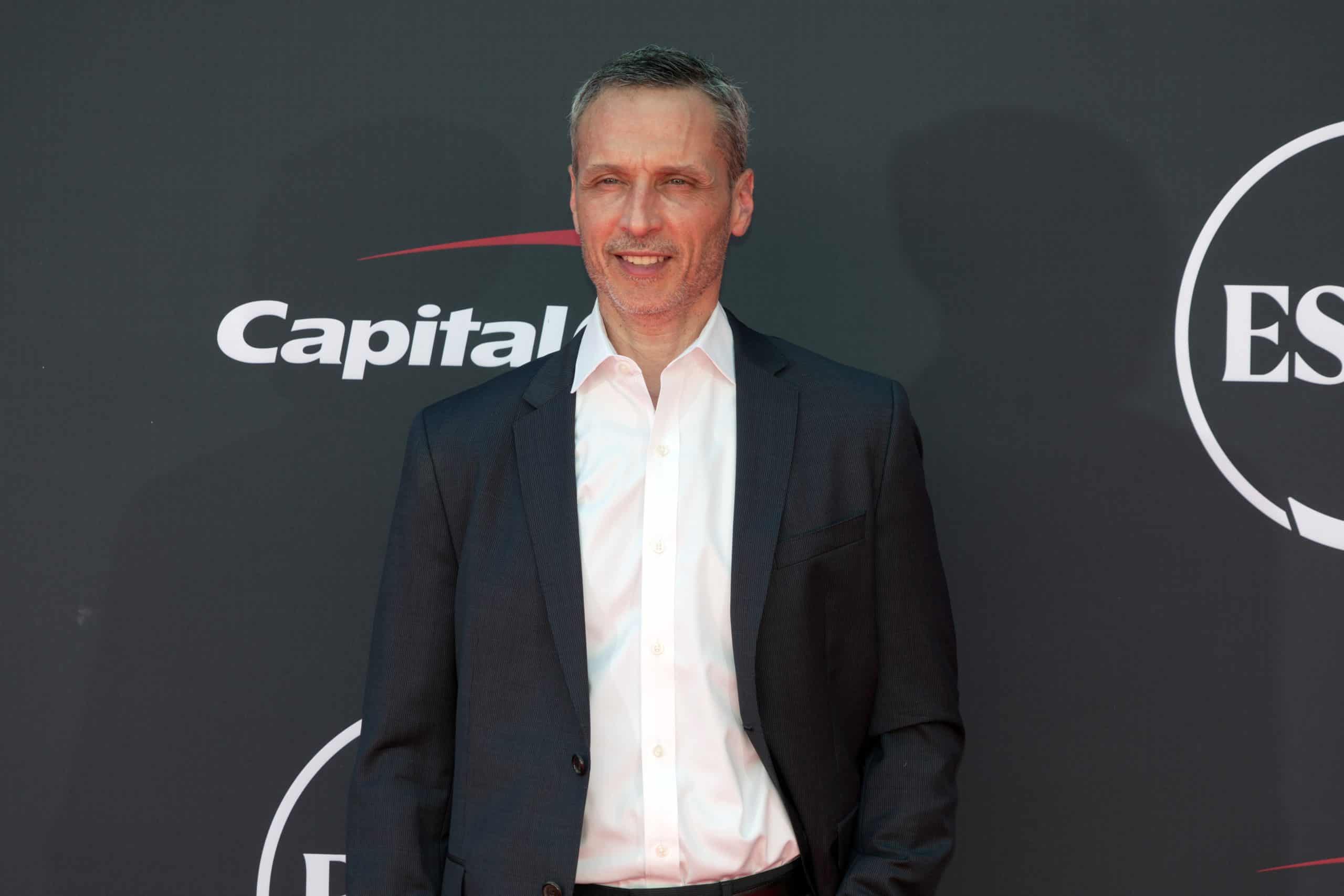
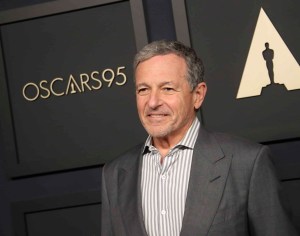
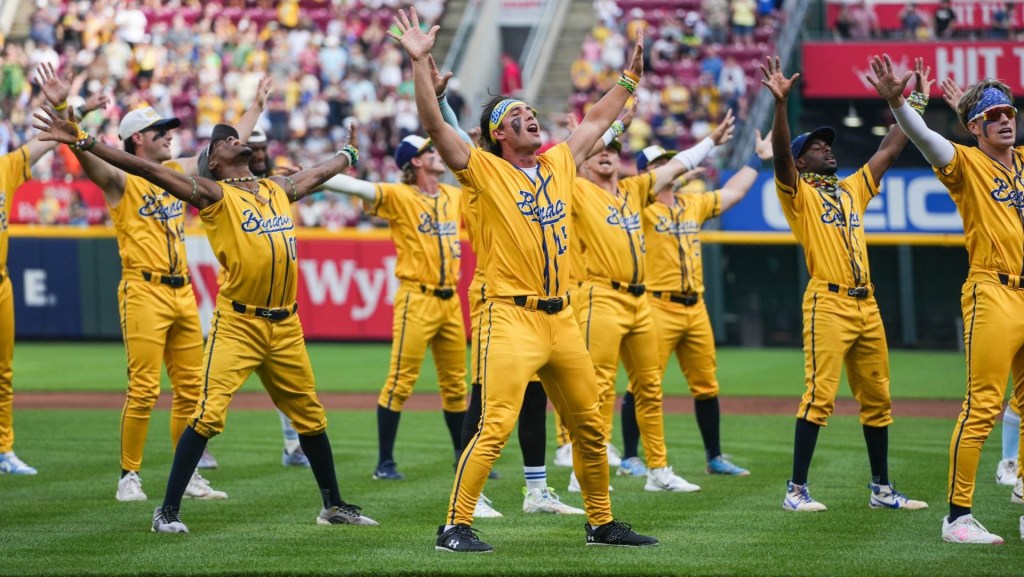
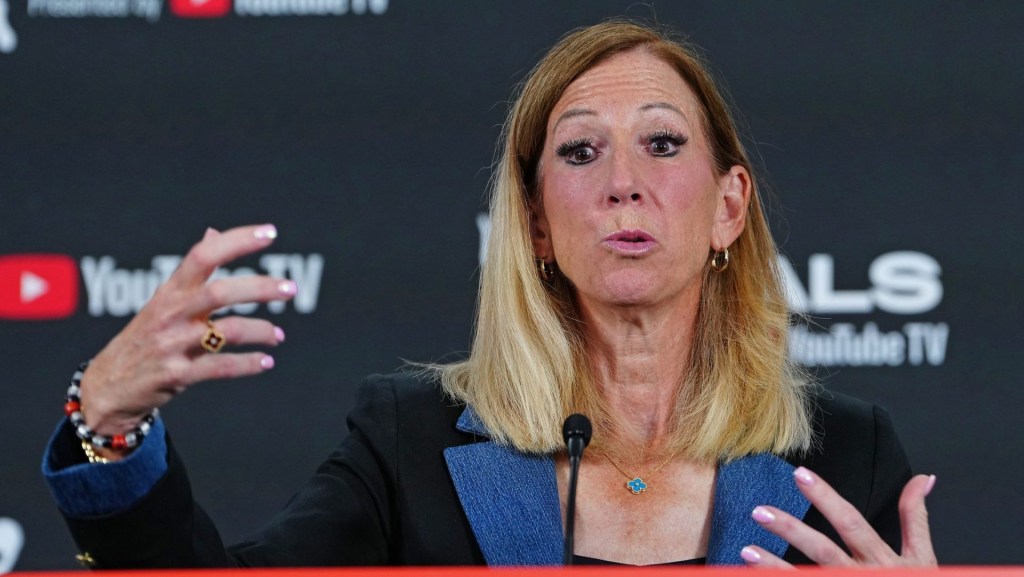
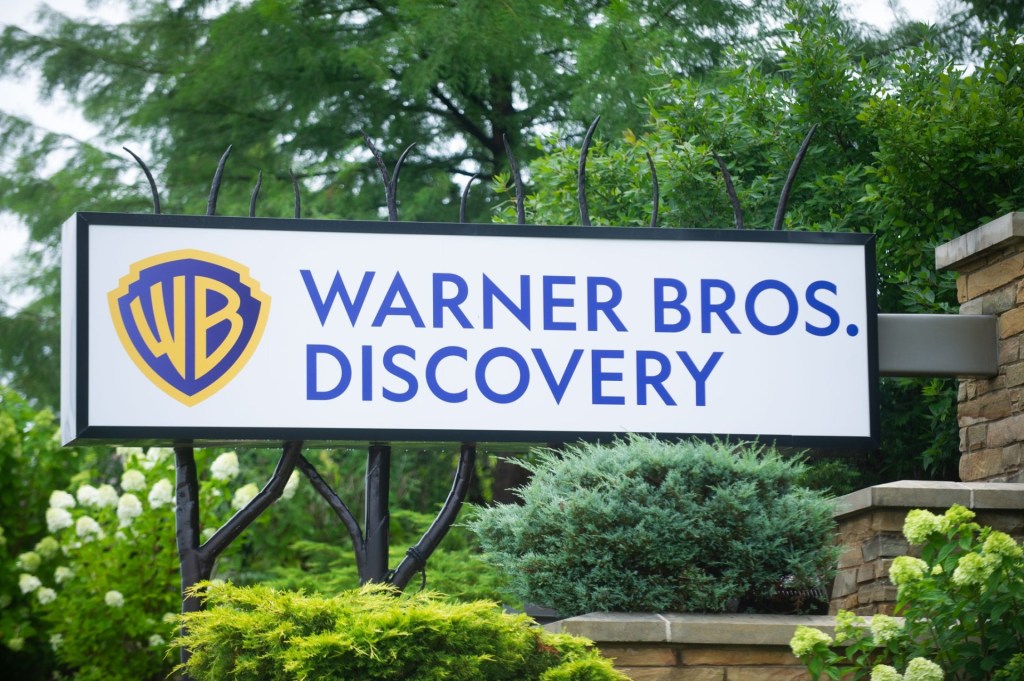
![ESPN Bet broadcasts inside the PGA Tour Studios building in Ponte Vedra Beach, Florida, on March 14, 2025. [Clayton Freeman/Florida Times-Union]](https://frontofficesports.com/wp-content/uploads/2026/02/USATSI_25668497_168416386_lowres-1-scaled.jpg?quality=100&w=1024)
![[Subscription Customers Only] Jul 13, 2025; East Rutherford, New Jersey, USA; Chelsea FC midfielder Cole Palmer (10) celebrates winning the final of the 2025 FIFA Club World Cup at MetLife Stadium](https://frontofficesports.com/wp-content/uploads/2026/02/USATSI_26636703-scaled-e1770932227605.jpg?quality=100&w=1024)



